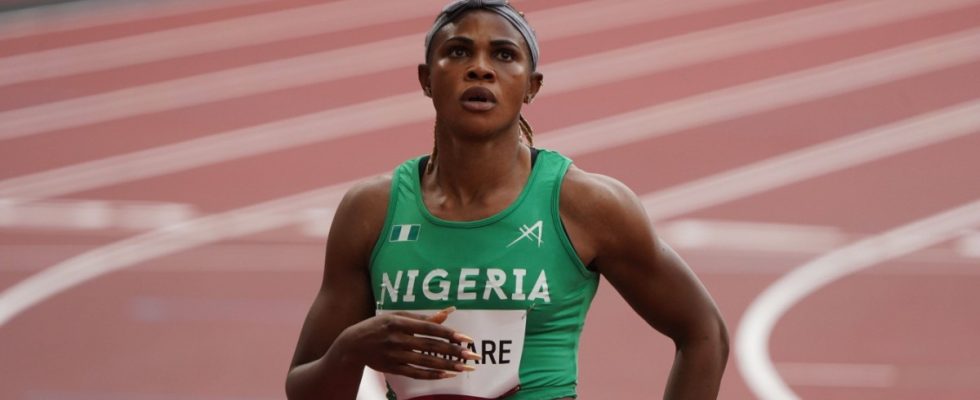Blessing Okagbare was a track and field athlete who felt truly blessed until not so long ago. “Hola amigo,” she texted her amigo, a certain Eric, in June 2021. “Eric, my body feels so good. I just ran 10.63 seconds over 100 meters”, at that time the second fastest time in history. “I’m sooooo happy,” Okagbare happily hammered into her phone, “Ericccccccc! Whatever you’ve done, it’s working so well!”
What good Eric had done can be summarized as follows: He had put together a tasty menu of growth hormones and other delicacies from the doping kitchen. The Okagbare catapulted into the circle of Olympic favorites shortly before the summer games in Tokyo.
That all this later reached the publicis thanks to a new investigative body that has what it takes the To become an authority in the fight against doping and fraud: the “Rodchenkov Act”, an American anti-doping law named after the key witness who started the Russian state doping scandal in 2015 and fled to the USA. Now a federal court in Manhattan is closing the first case under the new Act. Eric Lira, Okagbare’s full name “amigo” – a 43-year-old Texan who describes himself as a naturopathic and kinesiologist – has now admitted to supplying Okagbare and other “Olympic athletes” with banned substances. “A turning point for international sport,” said the responsible public prosecutor Damian Williams, and that was perhaps not even laid on too heavily.
The “Rodchenkov Act” is based on the anti-mafia laws in the United States. Instead of the athletes, it casts the spotlight on the people behind it: doctors, supervisors, officials. In this way, state investigators, independent of the interests of organized sport, can unravel the fraud from the point of view of the end user, the convicted athlete. An effective procedure, especially since the US judiciary can intervene wherever even one American dollar is moved. So almost everywhere, especially in big muscle parades like Olympics. Of course, organized sport doesn’t like the fact that the USA can now also take action against those behind the scenes abroad: it only brings chaos to the fight against fraud, the World Anti-Doping Agency has always lamented. Or doesn’t it rather shed light on a system that still prefers to control itself?
In Germany, the public prosecutor often investigates doping cases afterwards
In fact, it is not without its problems when the judiciary of one of the most powerful sporting nations in the world becomes a cross-border anti-doping authority. It behaves as in the case of American citizen Eric Lira, but it shows how sharp tools can work in the service of a good cause. A witness found doping in an athlete’s bag and informed the FBI. That’s the only way the investigators came across Okagbare – and her dealer: Eric Lira. Anti-doping investigators targeted the Nigerian, who tested positive shortly before the Tokyo Games. When she returned to the United States, where Okagbare was then living, state investigators confiscated her cell phone, along with text and voice messages. So they tied a dense carpet of evidence that made it possible for the investigators of the World Athletics Federation to block Okagbare for eleven (!) years – and that too further procedures against more athletes influenced.
All of this seems more stringent than the way in which sports investigators and government agencies have been joining forces in Germany to this day. There, the public prosecutor often comes along when a doping test has already revealed conspicuous signs, meaning that the athletes have been warned. (Operation Bloodletting was a notable exception). Also in the case of the first division basketball player Jason George from Chemnitz, who tested positive the state is now investigating afterwards. But that may not be so wrong for some representatives from organized sport.

